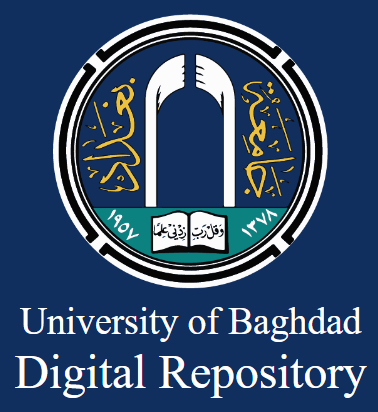The recepient’s beauty in the algerian theatre and the recepient’s hypothetical bet , reading in stop theater by m’hammed ben gataf
DOI:
https://doi.org/10.35560/jcofarts1100Keywords:
Algerian theater ,The Algerian receiver ,Theatrical practice ,theatrical work-the Aalgerian complex , M’hammed Ben Kataf ,the play stop , Thepsyco, sociological appearance , publicity , immediacy, directAbstract
Meditationsuggetsthat the theatrical world and the receiptindicatethattherie a thread connection or relationshipbetweenthembecausetheateris an art thatfailsinto the abyss of the humanfield ,receivingis a practice thatisreffered to by corners of society and islocated in the context of thisfield. Thus, the relationshipbetweenalgeriantheater and the recepientissanctified by the nature of theaterwhichisbased on a social basis thatbuildsitsexistance and continuityfrom the recepient.Its impossible to imagine a real theaterthatwillbeestablishedunlessit’sassociatedwith an audience so one hand never claps to makesound. This connectionis the first phenomenonthatcanbecome accessible to all people and itremains the second phenomenonthatrequires the presence of motives and fundationswhenpracticingitthat id represented or shown in the cultural and cognitive balance thatallows the most important to interfere in the moment in which all forms of phenomenathat express the multiplicityof meanings for the recepient .
Fromhere, wedecided to present the problematic of this intervention in a sequencethat combines the beauty of reception in the algeriantheaterthenweconcentrateoursyudy on the play’ s recepientsuch as « STOP » written by Moammed Ben Guattaf in the seventies and welinkedit to the discussion of a hypotheticalrecepient and provinghislegitemacy .So, to whatextentMohammed Ben Guattafwas able to create a theatricalworkthat the recepientcompletesitsmeaning and proveshisexistance ?orhow can the Algerian theatertodayprove the legitemacy of the hypotheticalrecepient in the shadow of the so-calleddirect ?or in otherwordscanweconsider the hypotheticalrecepient a new recepientimposed by new theatrical’swork and dictated by the necessitythroughwhich the theatricalcreatorsearch for new one instead of the lost one .
References
Ahmed Al Osheri. (1989). Introduction To Political theater theory. (t. E. Authority, Éd.) Cairo.
Anne Ubersfeld1981lire le theatre(T1)socialesparis
Dr. Ibrahim Abdullah AAloume. (2002). Theater and the Problematic Audience (éd. 1). (A. I. Publishing, Éd.) Beirut.
Emad Hadi AL Khafaji. (s.d.). History of Digital Technology and Theater. Récupéré sur http://www.ALFURJA.COM
Fatima Al Buraiki. (2006). Introduction to Interctive Literature (éd. 1). (A. C. Center, Éd.) Casablanca -Morocco-.
GUETTAF, T. l. (2005). The capital a library at the National Theatre -Algeria-.
Julian Hilton. (1995). New Directions in Theater. (S. C. Antiquities, Éd., & S. F. D Amine Alrabt, Trad.) Cairo.
Marwa Al Sanhouri. (s.d.). The Digital Theater.......Creativity seeks the way with experimental attempts.
Robert Holp. (1994). The Reception Theory Introduction to Theory (éd. 1). (L. a. Club, Éd., & E. Ismail, Trad.) Jeddah -Kingdom ofSaudi Arabia-.
Downloads
Published
Issue
Section
License
Copyright (c) 2023 سهيلة بلحوالة

This work is licensed under a Creative Commons Attribution 4.0 International License.













